DUBAI/LAHORE — It’s a unique combination of ambiance, plating, food, and service that makes a dining experience exquisite. SCAFA hit that sweet spot for me last December when I had their seven-course meal in Lahore, Pakistan. My favorite entrées were the beetroot soup, sticky toffee pudding, and triple-layered mousse cake. The plating had a fun pop of color, reminding me of a Seattle restaurant, Crush. I also loved their farm-to-table concept with seasonal inspiration from fresh produce. SCAFA is also the largest vocational culinary institute in the Middle East and Southeast Asia.
Our MTG team interviewed SCAFA’s CEO Zaigham Haque and COO Alisha Haque-Burns on Zoom. The dynamic father-daughter duo has big plans for both their restaurant and culinary school. What resonated the most with us were their conversations on gender parity in the kitchen, women inclusion and SCAFA’s global presence. Here’s more!
“We’ve had SCAFA students working at some of the best restaurants in the world. SCAFA students are working at NOMA in Copenhagen, Michelin-star restaurants across North and South America, Jean Georges Restaurants, and JW Marriott. We have built relationships with world-class brands because of our strategic location in Dubai.” – Zaigham Haque, CEO, SCAFA.
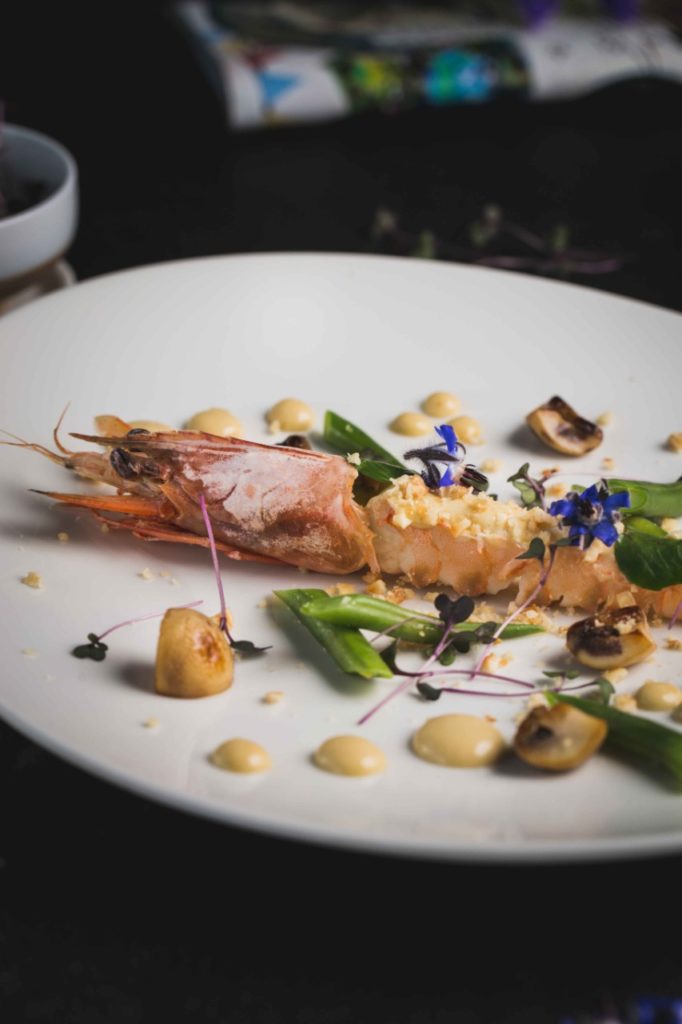
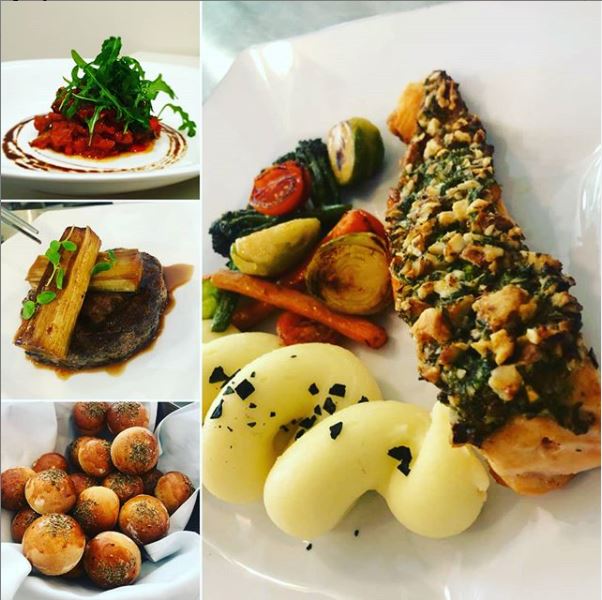
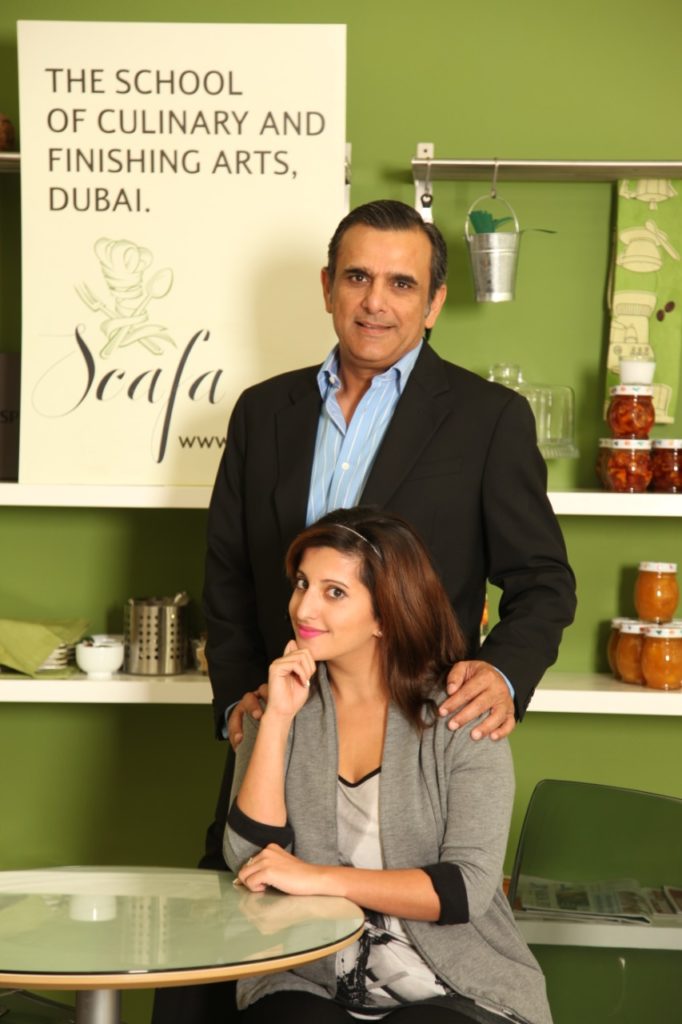
How was SCAFA established?
Zaigham: My daughter Alisha and I started to set up the school as a purposeful facility in Dubai in 2011. We then set up SCAFA Lahore in 2014 in EFU House on Jail Road. It was a very successful small school and restaurant in a nice modern glass and steel building in the heart of the city. The setup was very bespoke and intimate. There, we started our seven-course tasting menu made with varying textures, tastes, and techniques prepared by a SCAFA chef. It was very experimental in the beginning because it was unleashed onto an unsuspecting Lahore audience. As the school started growing, we moved into the premises at M.M. Alam Road, expanding from 12-seat to a 70-seat restaurant.
Tell us about SCAFA’s global presence.
Zaigham: Our program teaches world cuisine, where the students go on a culinary journey from North and South America to a range of European cuisines, including French cuisine. We also cover the Middle East, through to South Asia, Southeast Asia, China, and Japan. We teach our students the language of the kitchen along with a structured, modern curriculum, and application of skills and techniques. For instance, in the French Classical technique, we use words like julienne and sauté. The food that you dined on, was during the middle of a busy French week.
Alisha: French is a very predominant focus of our brand, but we do a lot of fusion as well. Each seven-course menu has a different flow and cuisine; it’s not a static menu and is always changing. For example, recently we had a Latin American menu. Pakistan is a very seasonal country, and the menu is reflective of that.
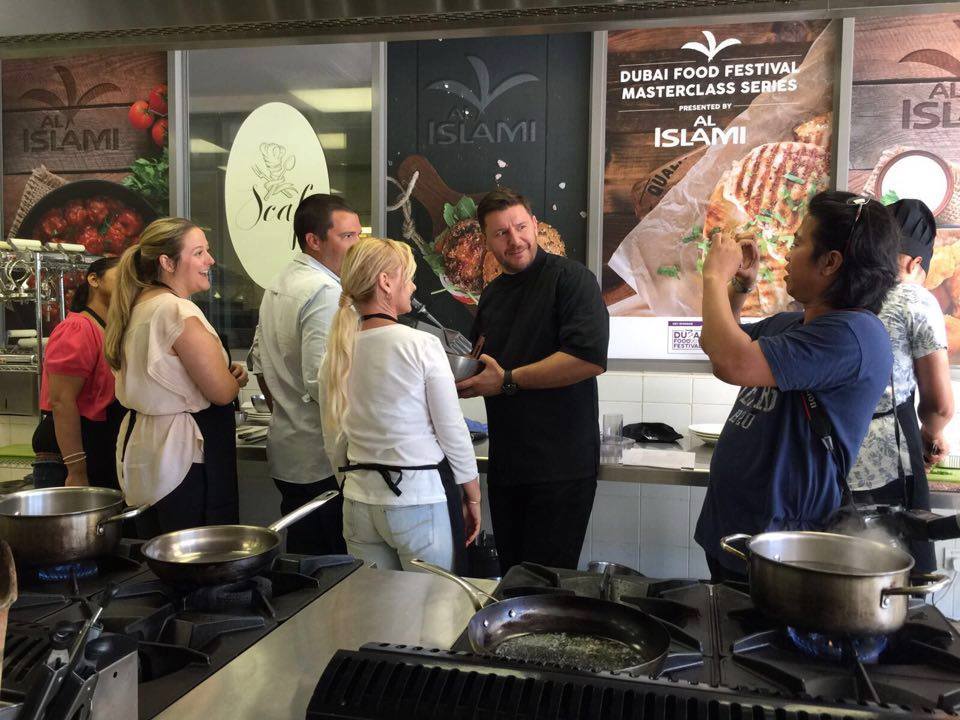
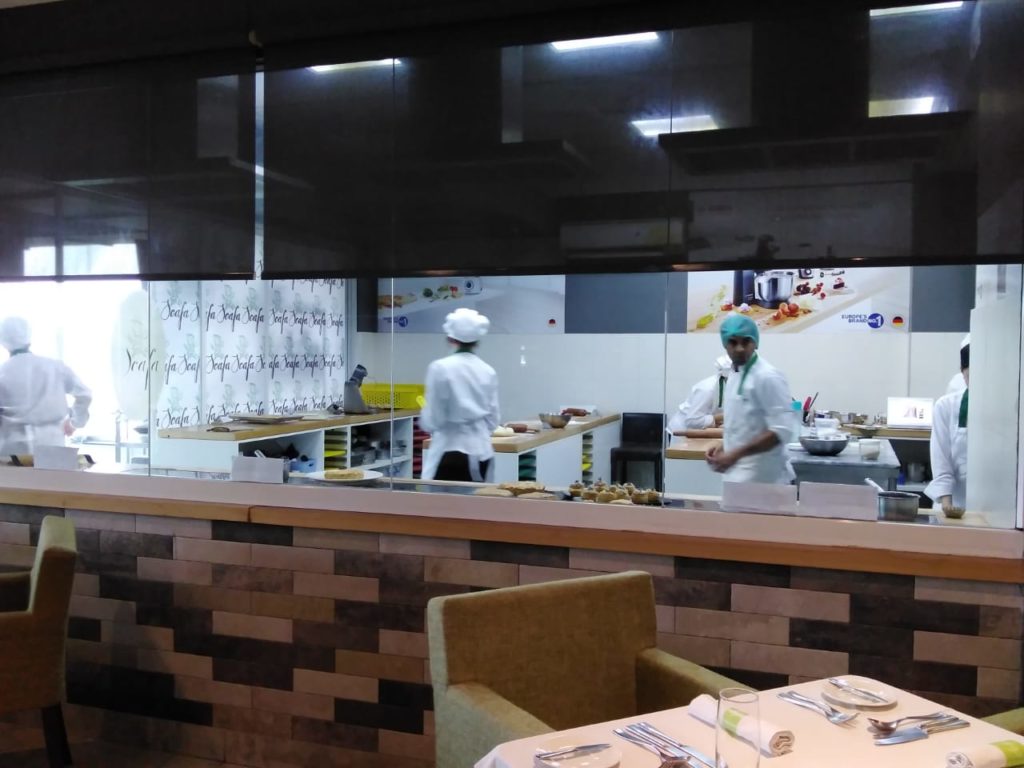
How inclusive is SCAFA in terms of women and gender parity?
Alisha: The equality of gender so important to us in the kitchen, or when making placements for jobs and internships. Women see this as an opportunity to start something of their own. We’ve had a good success rate in placing a lot of female candidates with good brands, hotels, and restaurants. Gender parity is a conversation that I have had with general managers and HR managers of hotels within UAE. Their focus as a brand and as a concept is to encourage women to apply for many different roles. In Pakistan, it’s not the case as some women get to work in the hotels, but not realistically in the kitchen.
Many international hotels now put a lot of emphasis on maintaining a 50-50, or a 60-40 gender balance skewed towards women. The situation is better than it was five or six years ago. Before this, Pakistani women in the culinary industry were stereotyped into distinct roles. For example, segregating a woman into the pastry section because it’s quieter and less chaotic. The girls always have a lot to prove in the kitchen.
Zaigham: Girls enrolling in our campus in Lahore come from standard conservative Pakistani families. Their families trust us with their girls by sending them to SCAFA Dubai for internship opportunities. Those girls are now working in some of the best restaurants in Dubai. There is still a stigma attached to women working in a professional kitchen in Pakistan. They can now become empowered, independent, and get the skills and competencies to start a home-based business. SCAFA provides that opportunity to them. Our SCAFA girls are everywhere! There was a big event last year at the Lahore Packages Mall where every second stall was a former SCAFA female student.
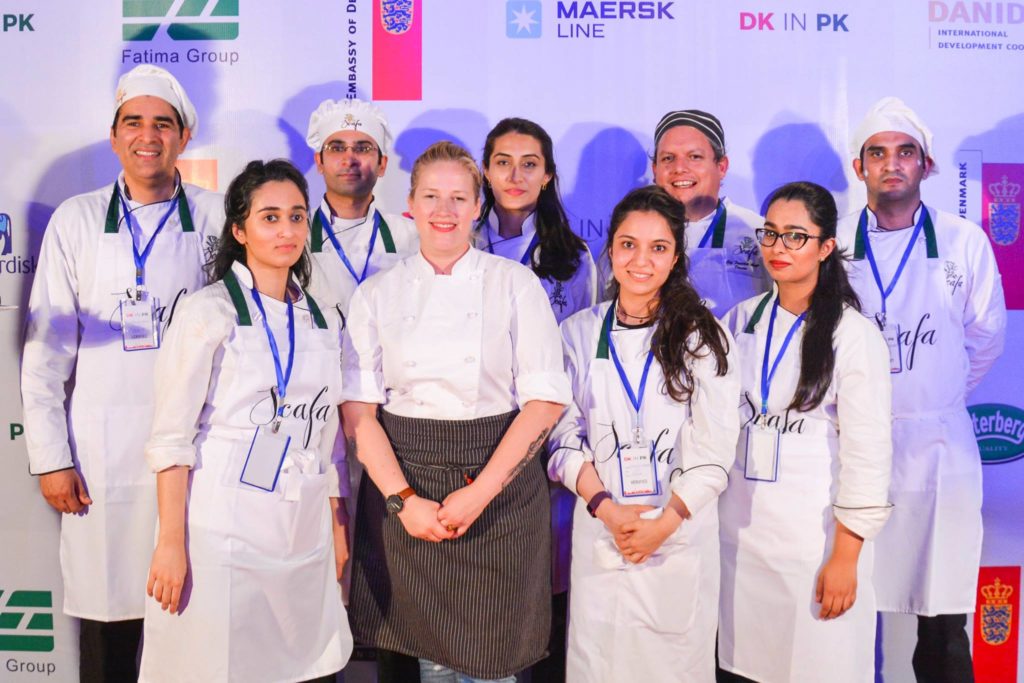
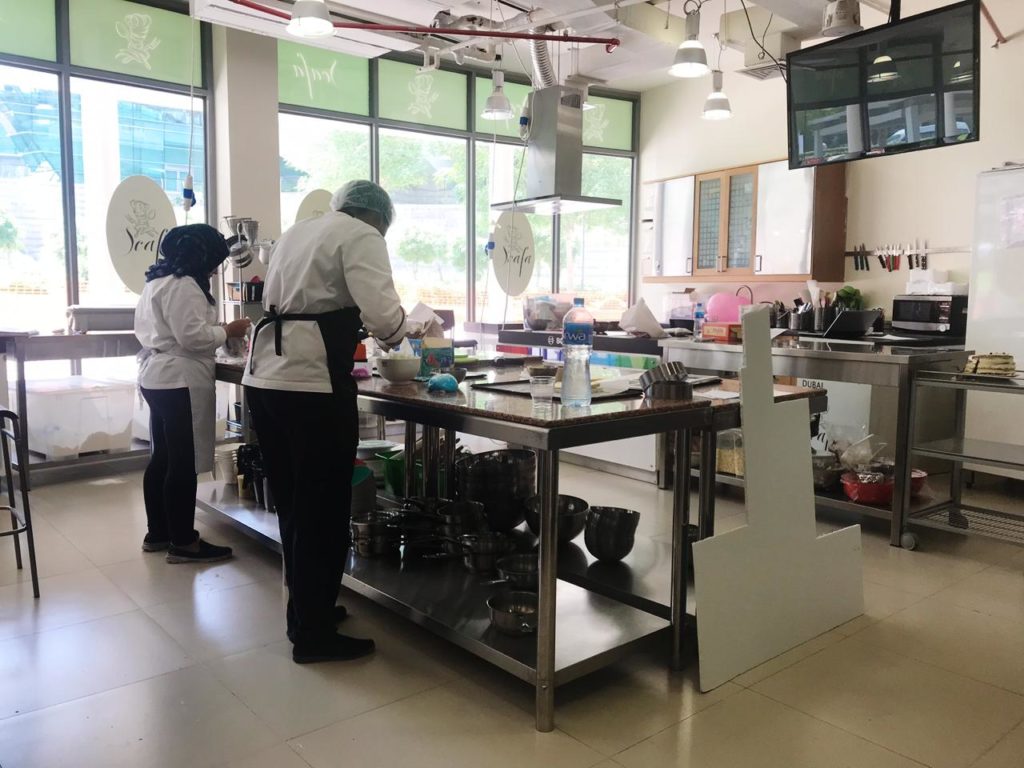
How has COVID-19 impacted SCAFA’s growth?
Both campuses closed in the March/April period when the pandemic first hit. During that time, we set up an online cooking studio for current students, beginners, and kids’ classes. We also started running some small online Team-building exercises. Team building is a core part of the SCAFA experience, and because it happens in an in-person space, making it online was challenging. We still run some of our theory classes via Zoom sessions with students in Nigeria, Pakistan, and Dubai. Though there may be the odd connection issue, it’s been fun but a new experience for us. It’s also been a big learning curve for us.
Unfortunately, we’ve had a big setback with the COVID lockdown. We were just on the cusp of becoming the culinary program operator for a very large company, the largest in the Middle East. That setup was almost complete in Saudi Arabia in collaboration with EMAAR. Unfortunately, that project is now on hold and has been pushed to 2021.
Zaigham, what inspired you to get into the culinary business?
I have a background in business and I started looking into culinary arts because of my enthusiasm for food. So, my reflex response back then was to look at Le Cordon Bleu and find out if they would be interested in collaborating and setting up a school in the UAE. I met with Andre Cointreau, the owner of Le Cordon Bleu, and we had some very entertaining lunches together, but my vision didn’t pan out. I knew that this was something that I wanted to get into. So I left what I was doing in the education space.
Alisha, what is your role at SCAFA?
I’ve been at SCAFA Dubai since 2011 and at SCAFA Lahore for about a year. I’m currently the branch manager and school director for SCAFA Lahore. I look after the school and the restaurant. Currently, the restaurant is closed and we are planning on reopening in 2021. My focus is to drive the programs for the students. I play a big part in placement because we want to see the students grow. We greatly benefit from having students come back who have traveled, gained more experience, and are setting up their own businesses.
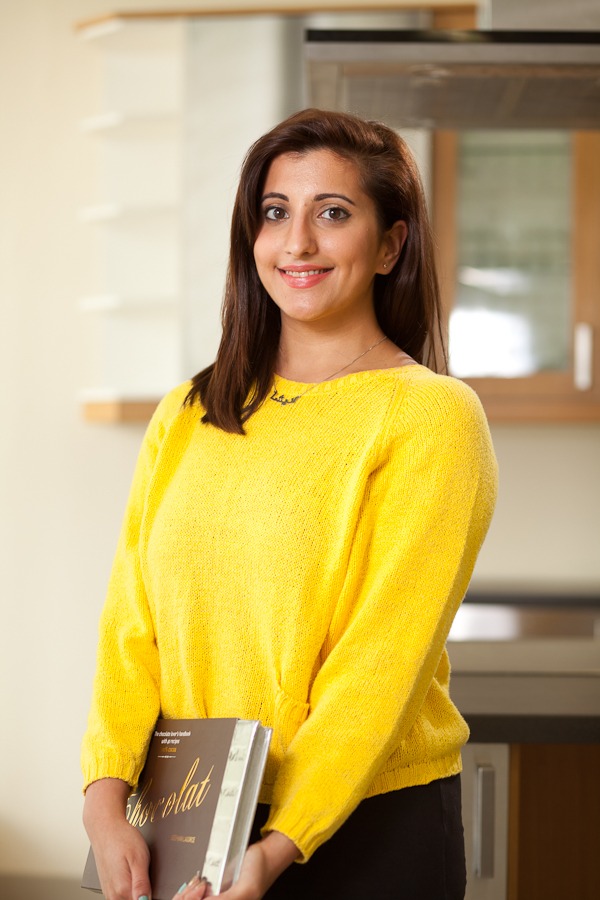
What is the global potential of a SCAFA graduate?
Zaigham: We’ve had SCAFA students working at some of the best restaurants in the world. SCAFA students are working at NOMA in Copenhagen, Michelin-star restaurants across North and South America, Jean Georges Restaurants, and JW Marriott. We have built relationships with world-class brands because of our strategic location in Dubai.
We’re the exclusive training partners in the UAE with the Intercontinental Hotel Group (IHG). It’s exciting that students graduating from SCAFA programs are eligible to join the IHG on a six-month internship. At the end of the internship, they’re assessed and if they’re successful, it’s the beginning of an international career with perhaps the best hotel brand in the world.
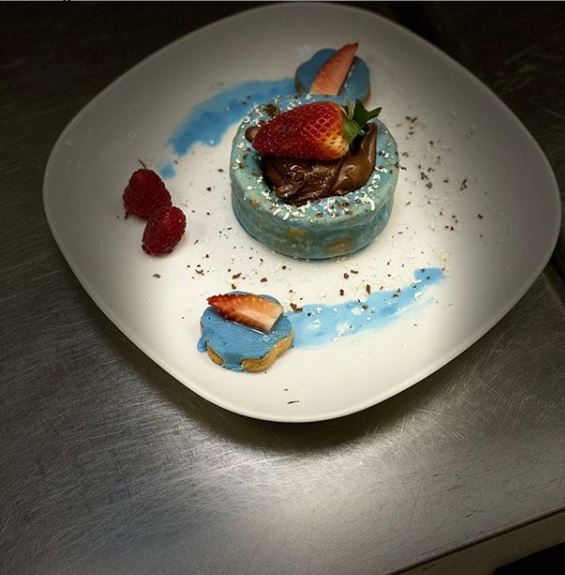
Are your classes shifting to an online format during this pandemic? If so, how will that look?
Alisha: Both campuses closed in the March/April period when the pandemic first hit. During that time, we set up an online cooking studio for current students, beginners, and kids’ classes. Team-building exercises are a core part of the SCAFA experience, and because it happens in an in-person space, it was challenging online. We’ve had our Zoom sessions with students in Nigeria, Pakistan, and Dubai. Though there have been connection issues, it’s been fun. It’s also been a big learning curve for us.
Zaigham: It was great global exposure for students in Lahore because they felt part of an international school due to live interactive sessions with students in Nigeria, Tanzania, India, Belgium, and the UAE.
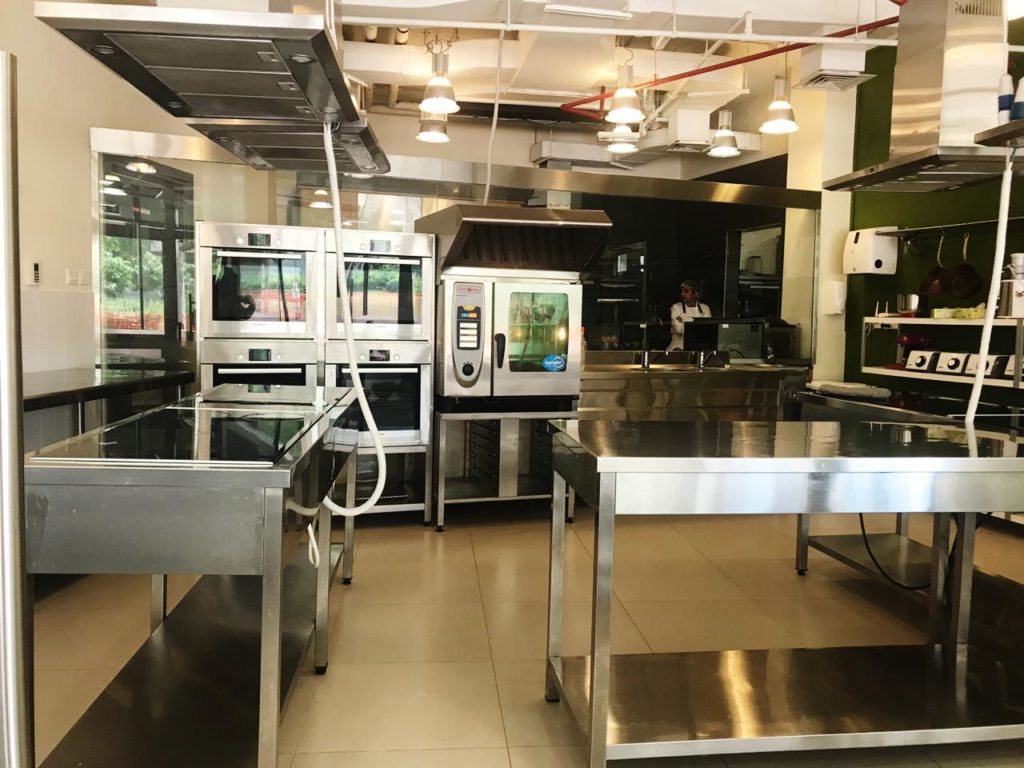
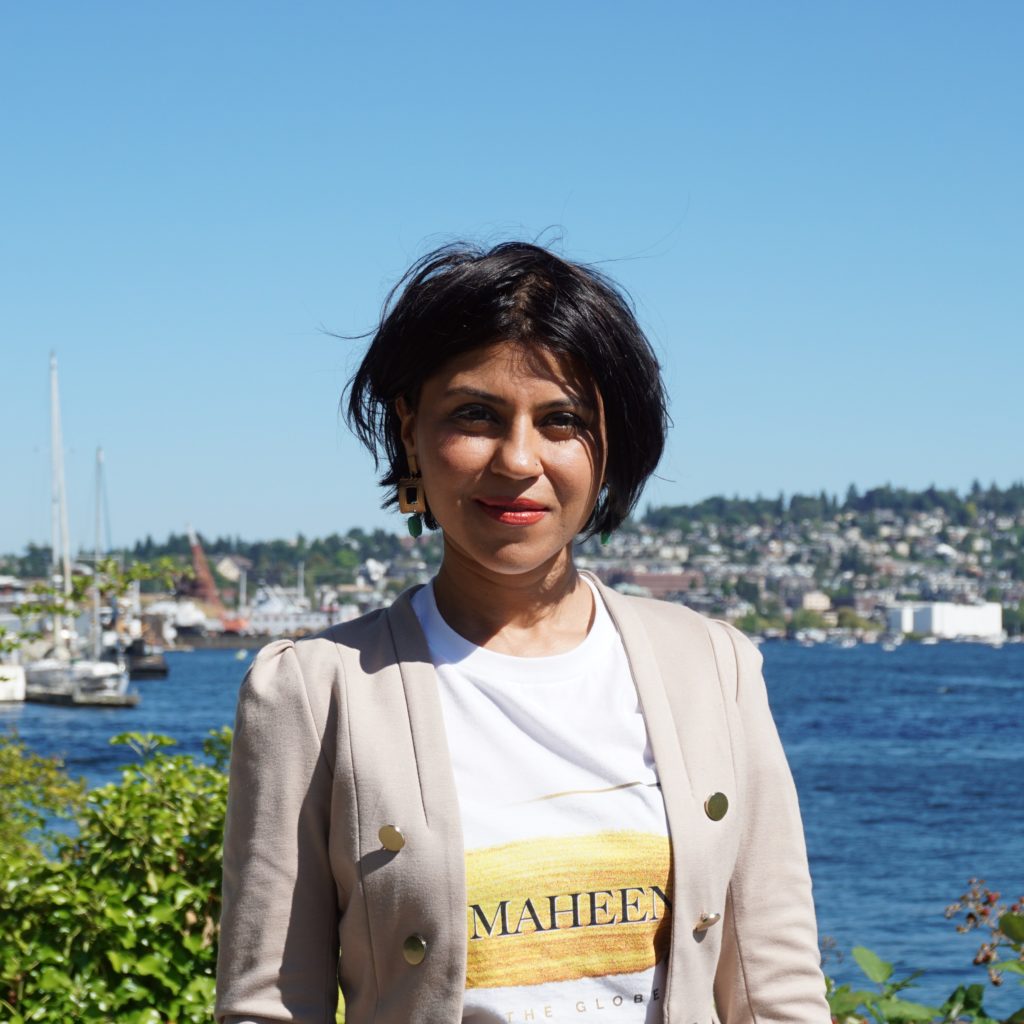
Maheen Mustafa is the CEO, Founder, Editor-in-Chief, and Senior Writer of Maheen The Globe (MTG) a Seattle-based, independent media outlet covering global stories and perspectives. She covers beats social impact, wellness, food, education, space, fashion, culture, business, and music on MTG. You can send your pitches to her at [email protected]. Her Twitter handle is @MaheenM_.
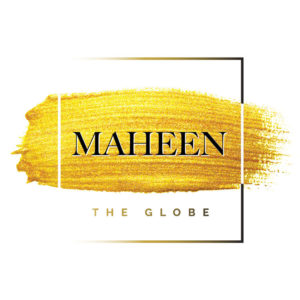
Thank you for sharing superb informations. Your web-site is very cool. I am impressed by the details that you have on this site. It reveals how nicely you perceive this subject. Bookmarked this website page, will come back for more articles. You, my pal, ROCK! I found simply the information I already searched all over the place and simply couldn’t come across. What a perfect web site.
Thanks regarding providing these types of good write-up. Alla Christian Marr
This is my first time go to see at here and i am genuinely pleassant to read all at single place. Emalee Edd Claretta
Very good post. I definitely appreciate this site. Keep writing! Ingaborg Lucien Myrtia
Thanks for sharing, this is a fantastic blog. Much thanks again. Really Cool. Ashlen Cris Shir
I was able to find good information from your blog articles. Lisabeth Godfry Blanka
Hi there, You have done an incredible job. I’ll certainly digg it and personally suggest to my friends. I am sure they will be benefited from this site.| Tove Chen Edme
Great remarkable things here. I am very happy to look your post. Thank you a lot and i am looking ahead to touch you. Will you please drop me a mail? Janel Mathias Rainie
I am in fact grateful to the owner of this web page who has shared this fantastic post at at this place. Idette Scottie Sokil
I carry on listening to the news broadcast talk about getting free online grant applications so I have been looking around for the most excellent site to get one. Could you advise me please, where could i find some? Gladys Tann Allianora
Great post! I am finding self care difficult during this pandemic and this is a fantastic reminder. Thank you. Sharleen Fabio Melita
Great Service, the food is absolutely Delicious and I hope they stay open forever! Dorice Demetri Mersey
I am extremely impressed along with your writing skills and also with the structure on your weblog.
Is this a paid subject or did you customize it your
self? Anyway stay up the nice high quality writing, it’s rare to peer a nice weblog like this one
today..
Wonderful beat ! I would like to apprentice while you amend your web
site, how can i subscribe for a blog web site? The account aided
me a acceptable deal. I had been a little bit acquainted of this your broadcast provided bright clear idea
Pretty section of content. I just stumbled upon your weblog and
in accession capital to assert that I acquire actually enjoyed account your blog
posts. Anyway I’ll be subscribing to your augment and
even I achievement you access consistently quickly
What’s Happening i’m new to this, I stumbled upon this I have discovered It positively useful and
it has helped me out loads. I hope to contribute & aid other customers like
its aided me. Great job.
Stop by my webpage weed gummies
Thank you for this beautiful article. It’s really a good article
Very good blog post. Much obliged.